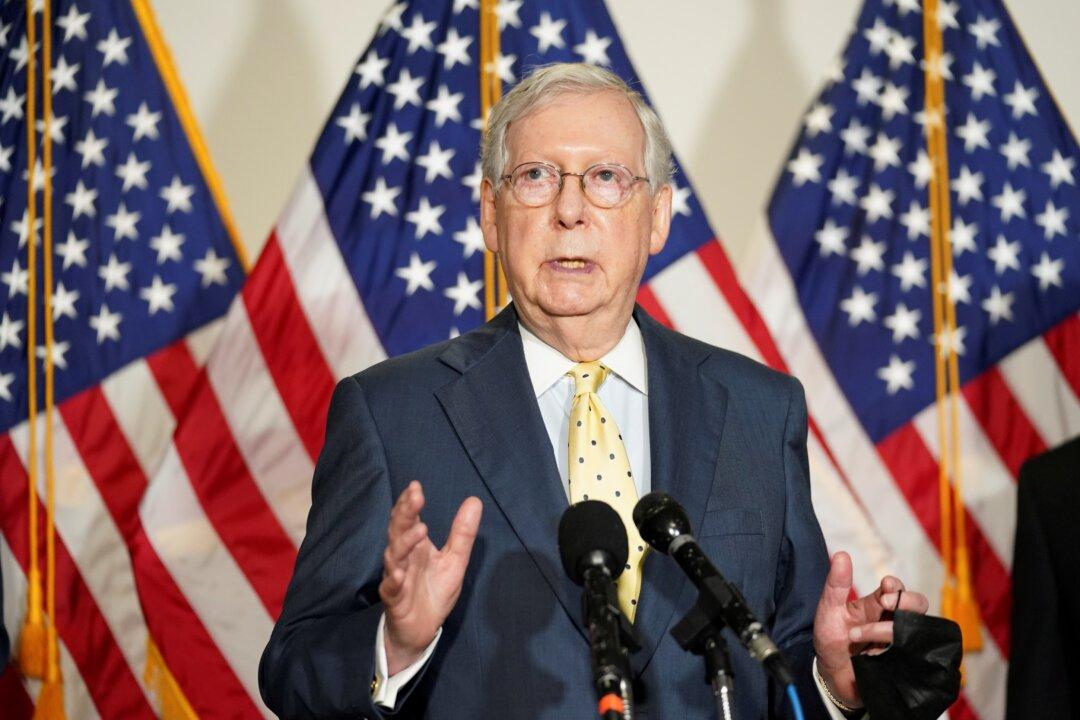Senate Majority Leader Mitch McConnell (R-Ky.) said on Friday that President Donald Trump’s nominee to fill the seat left vacant by late Justice Ruth Bader Ginsburg will get a vote on the Senate floor.
“President Trump’s nominee will receive a vote on the floor of the United States Senate,” McConnell said in a statement.





